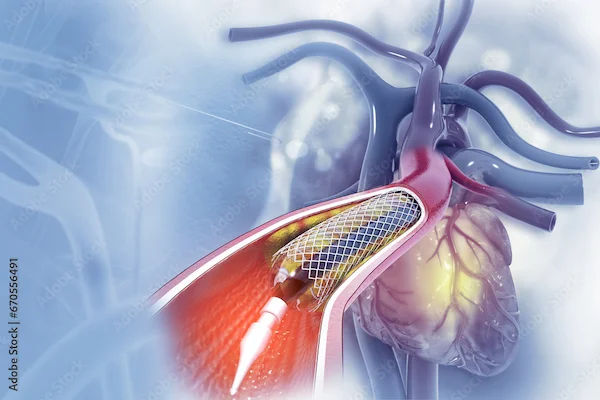Stroke Symptoms Related to Migraine in Women
Explore how migraine symptoms in women can sometimes mimic or mask signs of a stroke. Learn the key differences, risk factors, and when to seek immediate medical attention for proper diagnosis.


Migraines are more than just severe headaches—they can sometimes be linked to serious health risks, including stroke. For women, especially, migraines with certain symptoms may increase the risk of stroke. If you or a loved one experiences migraines, it’s important to recognise the warning signs and take steps to protect your health.
Migraine and Stroke: What’s the Connection?
Migraine is a neurological condition that causes intense, throbbing headaches, often with nausea, vomiting, and sensitivity to light and sound. Some women experience migraine with aura—a warning sign before the headache starts, such as flashing lights, zigzag lines, or temporary vision loss.
Research shows that women who have migraines with aura may have a higher risk of stroke, especially if they:
- Are under 45 years old
- Smoke
- Use hormonal birth control (especially combined estrogen-progestin pills)
- Have high blood pressure or diabetes
While not every migraine sufferer will have a stroke, it’s crucial to be aware of the risks and take preventive measures.
Consult Top Heart Specialists
Stroke Symptoms That May Mimic Migraine
A stroke occurs when blood flow to the brain is blocked or when a blood vessel bursts. Some stroke symptoms can resemble migraine symptoms, making it hard to tell them apart. Here’s what to watch for:
1. Sudden, Severe Headache (Unlike Usual Migraine Pain)
If you experience a "thunderclap" headache—an extremely intense headache that comes on suddenly—it could signal a stroke or bleeding in the brain.
2. Weakness or Numbness on One Side of the Body
Unlike migraines, which may cause tingling, a stroke often causes sudden weakness or paralysis in the face, arm, or leg (usually on one side).
3. Trouble Speaking or Understanding Speech
Slurred speech, confusion, or difficulty finding words can indicate a stroke.
4. Vision Problems (Different from Migraine Aura)
While migraines may cause temporary visual disturbances, a stroke can lead to sudden vision loss in one or both eyes or double vision.
5. Loss of Balance or Coordination
Dizziness, trouble walking, or loss of coordination may occur with a stroke but are less common in migraines.
6. Sudden Confusion or Memory Loss
If you suddenly feel disoriented or forgetful, it could be a stroke symptom.
Remember: If you or someone else experiences these symptoms, call emergency services immediately (Dial 108 in India). Time is critical in stroke treatment!
Who Is at Higher Risk?
Women with migraines should be especially cautious if they have:
- A history of migraine with aura
- High blood pressure or cholesterol
- Diabetes or obesity
- A family history of stroke
- Smoking or excessive alcohol use
- Use of hormonal birth control or hormone replacement therapy
How to Reduce Your Risk?
While you can’t change some risk factors (like genetics), you can take steps to lower your chances of stroke:
1. Manage Migraines Effectively
Work with a doctor to find the right migraine treatment (preventive medications, lifestyle changes).
Keep a migraine diary to track triggers (stress, certain foods, lack of sleep).
2. Control Blood Pressure and Cholesterol
Get regular check-ups and follow a heart-healthy diet (low salt, high fibre, healthy fats).
3. Quit Smoking and Limit Alcohol
Smoking increases stroke risk significantly—seek help to quit if needed.
4. Stay Active and Maintain a Healthy Weight
Exercise regularly (even 30 minutes of walking daily helps).
5. Be Cautious with Birth Control
If you have migraines with aura, discuss non-hormonal or progestin-only birth control options with your doctor.
6. Recognise and Act Fast on Stroke Symptoms
FAST Test for Stroke:
- Face drooping
- Arm weakness
- Speech difficulty
- Time to call emergency services
When to See a Doctor?
If you experience:
- A sudden, severe headache unlike your usual migraines
- New neurological symptoms (numbness, vision loss, confusion)
- Frequent or worsening migraines
Consult a neurologist to assess your risk and get personalised advice.
Conclusion
Migraines can be more than just painful—they may signal a higher stroke risk for some women. By recognising the warning signs, managing risk factors, and seeking timely medical care, you can protect your brain health.
If you’re concerned about migraines and stroke risk, Apollo 24|7 offers expert neurologist consultations and health check-ups. Early detection and management can make a big difference.
Consult Top Heart Specialists
Consult Top Heart Specialists

Dr. Lal Daga
Cardiologist
20 Years • MBBS, DNB [MED], DNB [CARDIO], FESC [INT], MNAMS
Ahmedabad
Apollo Hospitals Gandhinagar, Ahmedabad

Dr. Siddharth Bajaj
Cardiologist
10 Years • MBBS, M.D. D.M. (Cardiology)
Hyderabad
Apollo Hospitals Jubilee Hills, Hyderabad

Dr Veenu J
Cardiologist
12 Years • MBBS, DNB, DM
Mysuru
Apollo BGS Hospital Adichuchanagiri Road, Mysuru

Dr. Monik Mehta
Cardiologist
38 Years • MBBS, MD, DM (Cardiology), FACC (Fellow of American College of Cardiology), Fellowship (Cardiac Electrophysiology)
Gurugram
APOLLO SUGAR CLINICS GURUGRAM, Gurugram

Dr. Dayanashre N
General Physician
3 Years • MBBS
Bengaluru
PRESTIGE SHANTHINIKETAN - SOCIETY CLINIC, Bengaluru
Consult Top Heart Specialists

Dr. Lal Daga
Cardiologist
20 Years • MBBS, DNB [MED], DNB [CARDIO], FESC [INT], MNAMS
Ahmedabad
Apollo Hospitals Gandhinagar, Ahmedabad

Dr. Siddharth Bajaj
Cardiologist
10 Years • MBBS, M.D. D.M. (Cardiology)
Hyderabad
Apollo Hospitals Jubilee Hills, Hyderabad

Dr Veenu J
Cardiologist
12 Years • MBBS, DNB, DM
Mysuru
Apollo BGS Hospital Adichuchanagiri Road, Mysuru

Dr. Monik Mehta
Cardiologist
38 Years • MBBS, MD, DM (Cardiology), FACC (Fellow of American College of Cardiology), Fellowship (Cardiac Electrophysiology)
Gurugram
APOLLO SUGAR CLINICS GURUGRAM, Gurugram

Dr. Dayanashre N
General Physician
3 Years • MBBS
Bengaluru
PRESTIGE SHANTHINIKETAN - SOCIETY CLINIC, Bengaluru




